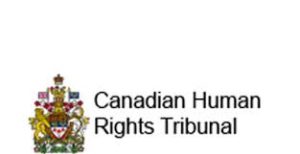How does a court decide whose rights are more important when two diverse groups are at the table?
How does a court decide whose rights are more important when two diverse groups are at the table?
Think about that. The Human Rights Tribunal in Canada,and in each province, has to develop a hierarchy of rights; in a country that at its very core states all people are equal.
So I ask, how does a country whose core value is the equality of all justify the development of a hierarchy of rights? Which group’s rights (because it does come down to identity politics) are more right than another group?
I wrote about this years ago when a Muslim barber was taken to the court by a gay woman when he refused to cut her hair.
I wrote then:
“Diversity will be the death of the social contract, and the demise of the lifestyle to which we have become accustomed, and now take for granted, as groups of people declare their views as special, overruling the rights of others, without a thought to one’s personal responsibilities, responsibilities to others and mutual preservation. We are so busy being inclusive through diversity (another Alice in Wonderland oxymoron) that we are losing our connection to the ethic and tearing apart the social contract that binds us together.
More on this case after I share the latest commandment from the British Columbia Human Rights Tribunal.
An atheist family did not want their daughter to participate in any multicultural events; Christmas Hanukkah, Valentine’s day, or any other “religious/political event” — including, Remembrance Day, at the private school, Bowen Island Montessori, to which they chose to send their daughter.
The school clearly states its multicultural (diverse) approach to teaching.There are many private and public schools in British Columbia. This family knew the school’s mission statement and still sent their child. No one forced this family to send their child. The parents continued to push the school to honour their atheist beliefs they wanted their child to follow. They were finally told their daughter would not be allowed to continue to attend Bowen Island Montessori School (BIMS) unless they signed an agreement confirming their “understanding and acceptance” of all aspects of the school’s cultural program. The parents refused to sign and The Human Rights Tribunal sided with the family awarding them $12,000.00.
According to the tribunal the “case wasn’t about whether the school should be allowed to display Christmas ornaments or dreidels, or if teachers can discuss religion and holy days with their young charges. Instead, it was about the school’s response to the parents’ complaints — a response the tribunal described as discrimination.The school’s “demand amounted to discrimination on the basis of race, ancestry and religion.”
Pardon? The school is not discriminating on the basis of race, ancestry and religion. The school is teaching diversity by sharing the holidays, rituals, and symbols of the diverse groups in Canada. Why did the”identity politics” of one atheist family supersede the mission statement of the school?
Let’s go back to that Muslim barber and the gay woman who demanded he cut her hair.
He was a barber-you know for men. He purposely chose his profession so that he could earn a living while adhering to his beliefs that a man should not touch a woman not related to him. How many men, today, wish they had been like him?
He was taken to the Tribunal for discrimination against a gay woman. He finally agreed to settle or he would have lost his business fighting for his rights because the complainant gets free legal advice. It was clear the Tribunal believed her gay rights superseded his rights to only cut men’s hair. What did gay have to do with this? And why can’t a barbershop just be for men as there are many hairdressers who only cater to women? And this happened in Toronto where she could have walked ten steps in either direction and gone to a hairdresser or a barber who cut women’s hair.
This is the result of the human construction of a hierarchy of rights.
Which brings me back to the beginning. How does a court decide whose rights are more important when two diverse groups are at the table?
And more importantly, how does this Tribunal, this pseudo-court, contend it promotes diversity and respect for multiculturalism when we are witnessing divisiveness and enmity?
From the Ethics of the Fathers: “Rabbi Tarfon used to say, it is not incumbent upon you to complete the task, but you are not exempt from undertaking it.”



